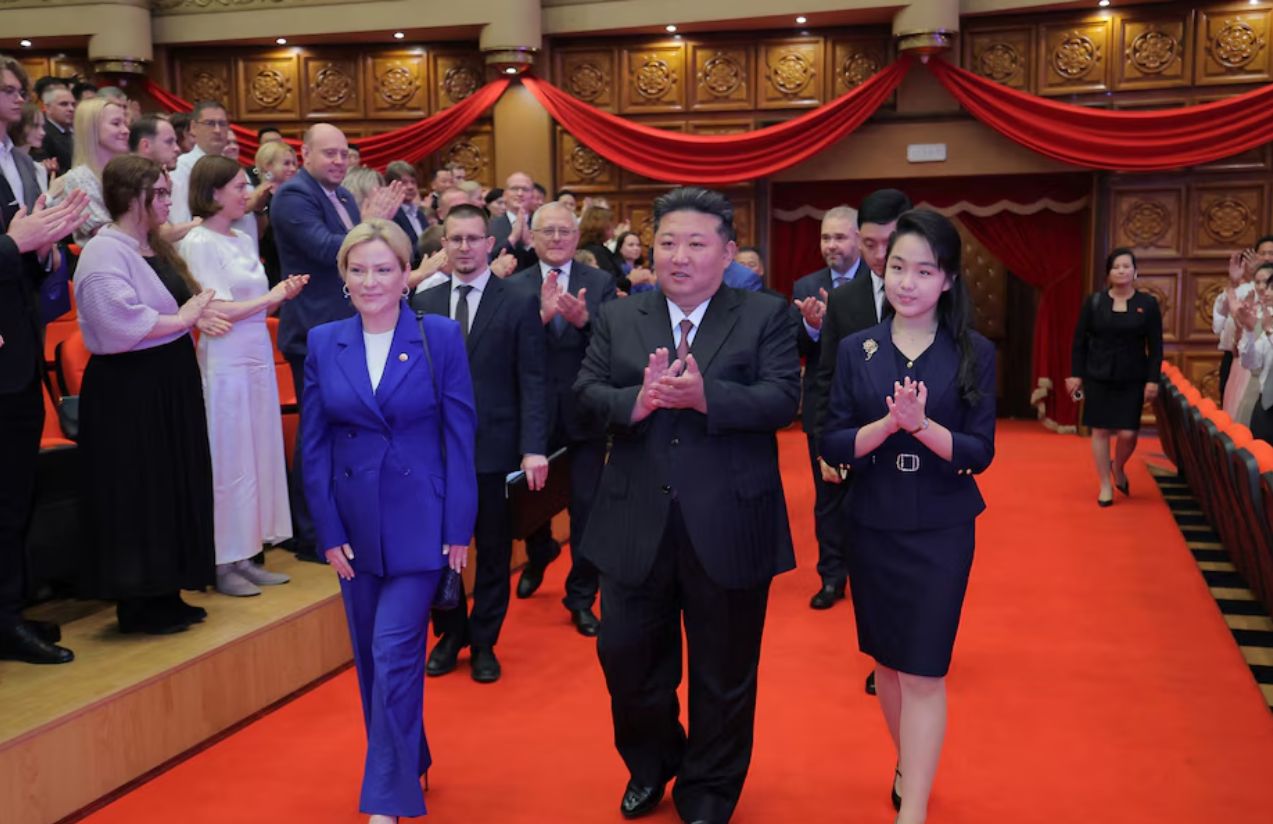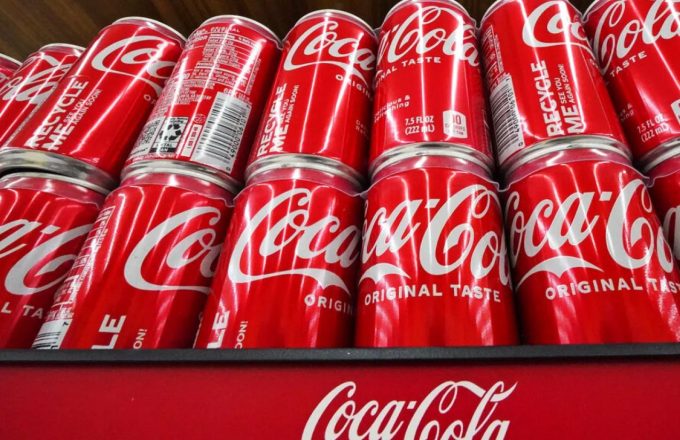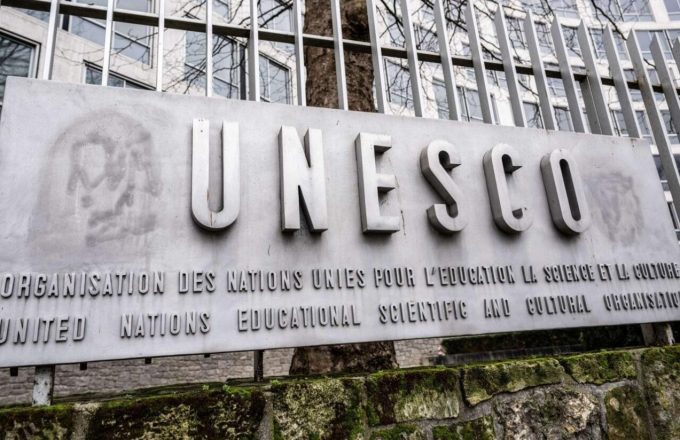In a meticulously staged ceremony, North Korean leader Kim Jong-un appeared on state television Sunday presiding over a military-style funeral, shown draping the national flag over a row of perfectly aligned coffins. At the center of the scene, a giant screen projected solemn images: six caskets, each one carefully wrapped by Kim in the red, white, and blue colors of North Korea. Six coffins. Six silent farewells.
The event, rich in symbolism, was attended by his daughter Kim Ju Ae and a high-level Russian delegation, including Culture Minister Olga Lyubimova. What initially appeared to be a tribute to fallen soldiers soon turned into a carefully choreographed spectacle featuring patriotic music, military imagery, and women crying in slow motion. Mourning, once again, in the service of propaganda.
The funeral coincided with the first anniversary of the strategic partnership treaty signed between Pyongyang and Moscow and was followed by a joint concert featuring North Korean and Russian performers. In the audience, several women wept as Kim and his daughter sat with solemn expressions. Next to them, Lyubimova applauded quietly. There were no speeches or official statements—only music and carefully curated visuals, more powerful than any declaration.
No information was provided about the identities of the deceased or the circumstances of their deaths. Yet the footage—interweaving scenes of combat, Russian symbols, and funerals presided over by Kim—clearly pointed to a growing military alliance between North Korea and Russia.
The ceremony came just weeks after the Kremlin publicly thanked North Korean soldiers for their role in Russia’s Kursk region, where they reportedly helped repel a Ukrainian offensive. In April, President Vladimir Putin hailed the “complete defeat” of Ukrainian forces in the area and praised the actions of “units of the Korean People’s Army.”
Days before the funeral, Russian state television aired footage for the first time showing North Korean troops training on Russian soil, armed and dressed in Moscow’s military uniforms. According to Western intelligence estimates, over 11,000 North Korean troops have been deployed since August 2024, with some 3,000 reinforcements sent following initial casualties. North Korea confirmed its involvement through its state news agency KCNA, framing the deployment as part of its obligations under the defense pact signed with the Kremlin last December.
That agreement, personally signed by Putin and Kim in Pyongyang in June 2024, established a strategic alliance including mutual defense commitments. Since then, both capitals have intensified public gestures of unity, amid mounting international isolation and multilayered sanctions.
During Sunday’s event, Kim did not deliver a speech, nor were any official communiqués issued explaining the purpose of the funeral. But the imagery—marching soldiers, fallen fighters, honored with flowers and violins—delivered a clear message: the military alliance with Moscow is deepening and being celebrated.
After the concert, Kim, his daughter, and the Russian delegation toured a photo exhibition inside the theater where the event took place. Later, they held private discussions, according to state media reports. While Ukraine and the ongoing war were not officially mentioned, the conflict permeated every image. And though Pyongyang avoids direct reference to the Russian invasion, the use of Russian symbols and the presence of Kremlin officials strongly suggest North Korea’s growing involvement in the war beyond its western border.




















